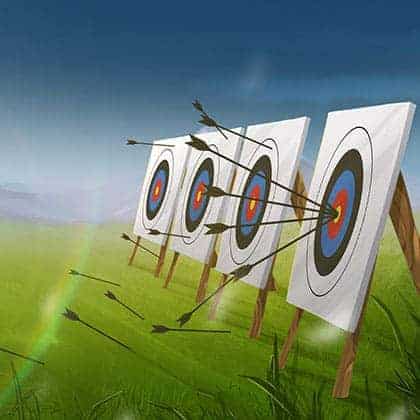According to a study by the World Health Organization, billions of individuals are at risk for hearing loss due to excessive noise exposure from personal audio devices such as headphones and earbuds.
It is vital for Gamers to be mindful of the noise levels they expose their ears to and take necessary precautions to protect them. This includes using headphones with a built-in volume limiter. In addition to this, incorporating certain foods into your diet can help promote healthy gamer hearing.
Foods for Healthy Hearing
Healthy eating is essential for healthy hearing! Not only does it prevent infection, but some evidence suggests that the nutrients in our food can help protect against noise-induced damage.
Here are some of the best foods (and minerals) to promote healthy hearing:
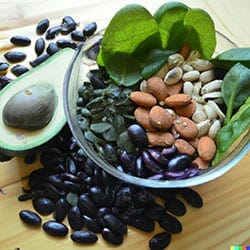
Magnesium
Magnesium helps protect the inner ear from damage and can improve hearing loss caused by noise exposure. Including magnesium-rich foods in your diet can help protect your hearing and keep it healthy because of its antioxidant and anti-inflammatory properties. Some great magnesium-rich foods include spinach, pumpkin seeds, black beans, almonds, and avocado.
 Potassium
Potassium
Potassium is mainly responsible for maintaining fluid and electrolyte balance. It also helps regulate blood pressure, which is important for a good-functioning circulatory system that carries oxygen to the ears. The liquid inside the ears is potassium-rich, so it is important to have a good supply of this mineral to maintain healthy hearing. Foods rich in potassium include bananas, cantaloupe, spinach, avocado, and potatoes.
Vitamin B12
 This vitamin is necessary for the proper function of nerve cells in the body, including those found in the ears. The nerve cells that send sound information to our brain are sensitive to changes in blood flow and oxygen levels, affecting hearing. Vitamin B12 is mainly found in animal-based foods, so if you don’t eat meat or poultry, you may need to supplement with a B12 vitamin. Some good sources of Vitamin B12 include seafood, beef liver, lamb, and eggs.
This vitamin is necessary for the proper function of nerve cells in the body, including those found in the ears. The nerve cells that send sound information to our brain are sensitive to changes in blood flow and oxygen levels, affecting hearing. Vitamin B12 is mainly found in animal-based foods, so if you don’t eat meat or poultry, you may need to supplement with a B12 vitamin. Some good sources of Vitamin B12 include seafood, beef liver, lamb, and eggs.
Zinc
 Zinc is another mineral that is important for healthy hearing. It helps protect the delicate sensory cells in the inner ear from damage and helps keep them functioning properly. Zinc is found in a variety of foods, but some of the best sources include oysters, beef, pork, chicken, cashews, and almonds.
Zinc is another mineral that is important for healthy hearing. It helps protect the delicate sensory cells in the inner ear from damage and helps keep them functioning properly. Zinc is found in a variety of foods, but some of the best sources include oysters, beef, pork, chicken, cashews, and almonds.
Folic Acid
 Folic acid is a water-soluble vitamin that is important for overall health, including the health of our ears. It helps protect the cells in the inner ear from damage and plays a role in repairing any damage that has already been done. Good sources of folate include leafy green vegetables, legumes, nuts, and fruit.
Folic acid is a water-soluble vitamin that is important for overall health, including the health of our ears. It helps protect the cells in the inner ear from damage and plays a role in repairing any damage that has already been done. Good sources of folate include leafy green vegetables, legumes, nuts, and fruit.
Vitamin K
 Vitamin K helps the body absorb calcium, which is important for bone health and bone density. The bones in our inner ear can become damaged due to exposure to loud noises such as explosions or gunshots heard in many video games. Food sources of Vitamin K include dark green leafy vegetables (kale, spinach), broccoli, and Brussels sprouts.
Vitamin K helps the body absorb calcium, which is important for bone health and bone density. The bones in our inner ear can become damaged due to exposure to loud noises such as explosions or gunshots heard in many video games. Food sources of Vitamin K include dark green leafy vegetables (kale, spinach), broccoli, and Brussels sprouts.
Vitamin D
 People with lower vitamin D levels may be more likely to experience age-related hearing loss. This is because vitamin D helps protect the cells in the inner ear from damage by protecting these cells by increasing their ability to resist oxidative stress. Although it is not clear yet whether taking vitamin D supplements can help prevent hearing loss, it is still a good idea to make sure you are getting enough of this nutrient through your diet. Some good sources of vitamin D include fatty fish, such as salmon and tuna, eggs, cheese, and mushrooms.
People with lower vitamin D levels may be more likely to experience age-related hearing loss. This is because vitamin D helps protect the cells in the inner ear from damage by protecting these cells by increasing their ability to resist oxidative stress. Although it is not clear yet whether taking vitamin D supplements can help prevent hearing loss, it is still a good idea to make sure you are getting enough of this nutrient through your diet. Some good sources of vitamin D include fatty fish, such as salmon and tuna, eggs, cheese, and mushrooms.
Omega Fatty Acids
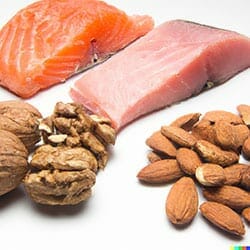 The omega fatty acids found in fish oil have been shown to reduce hearing loss and promote healthy gamer hearing. Studies have also shown that people with higher levels of omega-fatty acids in their blood have better hearing than those with lower levels. Some good sources of omega-fatty acids include fatty fish, such as salmon, tuna, mackerel, herring, and nuts like walnuts and almonds.
The omega fatty acids found in fish oil have been shown to reduce hearing loss and promote healthy gamer hearing. Studies have also shown that people with higher levels of omega-fatty acids in their blood have better hearing than those with lower levels. Some good sources of omega-fatty acids include fatty fish, such as salmon, tuna, mackerel, herring, and nuts like walnuts and almonds.
Antioxidants and Anti-Inflammatory Foods
 Vitamin A, Vitamin C, Vitamin E, Lycopene (found in tomatoes), Lutein (found in leafy greens), and Polyphenols found in green tea have all been shown to help protect the ears from damage. They do this by fighting oxidative stress and inflammation that can damage the delicate cells in the inner ear. These antioxidants and anti-inflammatory nutrients can be found in a variety of foods, so make sure you are eating plenty of fruits and vegetables every day.
Vitamin A, Vitamin C, Vitamin E, Lycopene (found in tomatoes), Lutein (found in leafy greens), and Polyphenols found in green tea have all been shown to help protect the ears from damage. They do this by fighting oxidative stress and inflammation that can damage the delicate cells in the inner ear. These antioxidants and anti-inflammatory nutrients can be found in a variety of foods, so make sure you are eating plenty of fruits and vegetables every day.
Vitamin A
- Leafy green vegetables (kale, spinach, broccoli), orange and yellow vegetables (carrots, sweet potatoes, pumpkin and other winter squash, summer squash)
- Tomatoes
- Red bell pepper
- Cantaloupe, mango
- Beef liver
- Fish oils
- Milk
- Eggs
- More on Vitamin A…
Vitamin C
- Citrus (oranges, kiwi, lemon, grapefruit)
- Bell peppers
- Strawberries
- Tomatoes
- Cruciferous vegetables (broccoli, Brussels sprouts, cabbage, cauliflower)
- White potatoes
- More on Vitamin C…
Vitamin E
- Wheat germ oil
- Sunflower, safflower, and soybean oil
- Sunflower seeds
- Almonds
- Peanuts, peanut butter
- Beet greens, collard greens, spinach
- Pumpkin
- Red bell pepper
- More on Vitamin E…
What is Tinnitus?
Tinnitus is a condition that causes the patient to hear sounds, such as ringing or buzzing in their ears, when no external sound is present. This can be caused by damage to the inner ear and auditory nerve from exposure to loud noise over time. Tinnitus can be a very frustrating and debilitating condition, but there are treatments available that can help lessen the symptoms; talk to your physician if you have Tinnitus.
Can Headphones Cause Tinnitus?
For most gamers, wearing headphones for extended periods of time is a part of the pleasure and enjoying the game. Wearing headphones or earbuds for long periods of time can lead to a condition called temporary threshold shift (TTS).
 TTS is a temporary loss of hearing sensitivity caused by exposure to loud noise. The good news is that if you experience TTS, your hearing will eventually return to normal. However, if you are exposed to loud noise often, you can develop a condition called permanent threshold shift (PTS), which is a permanent loss of hearing sensitivity. PTS can then lead to tinnitus – a condition in which you experience ringing or buzzing in your ears.
TTS is a temporary loss of hearing sensitivity caused by exposure to loud noise. The good news is that if you experience TTS, your hearing will eventually return to normal. However, if you are exposed to loud noise often, you can develop a condition called permanent threshold shift (PTS), which is a permanent loss of hearing sensitivity. PTS can then lead to tinnitus – a condition in which you experience ringing or buzzing in your ears.
TTS is most common among people who work around loud machinery (such as an airport, or construction zone) or attend concerts and sporting events often. However, it can also happen to gamers who are constantly exposed to music or audio from their headphones for long periods of time.
Final Thoughts
It’s essential to ensure your diet includes enough vitamins and minerals, especially if you’re trying to maintain hearing health. Before taking any supplements, it’s always best to speak with a healthcare professional. Eating a healthy diet rich in antioxidants and anti-inflammatory foods can help promote healthy hearing, allowing you to enjoy gaming for years to come!
Also, consider having breaks from gaming, headphone, screens and more – even at work if you are at a computer!
Do This!
- Every 20 minutes, take of your headphones, walk away from your screen or sound source for a minute; or every hour, take a 5-minute walk with no headphones.
- If you need a snack, eat a balanced meal with fresh food; stop eating Junk and processed Foods.









 Snacks
Snacks Water
Water Eye Sight
Eye Sight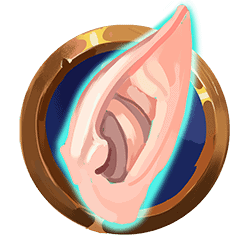 Hearing
Hearing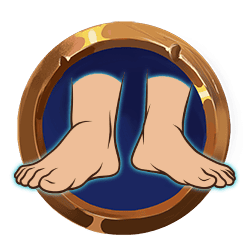

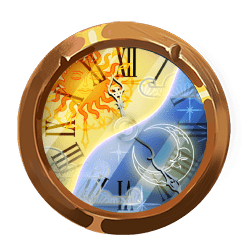












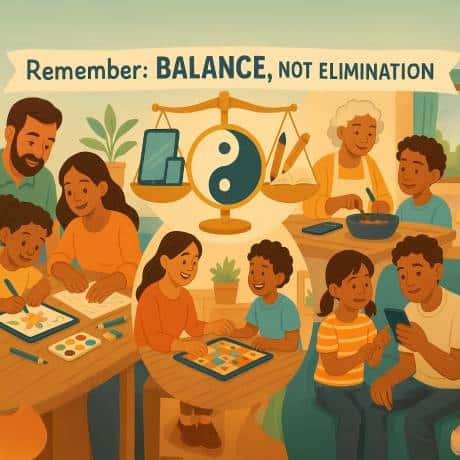

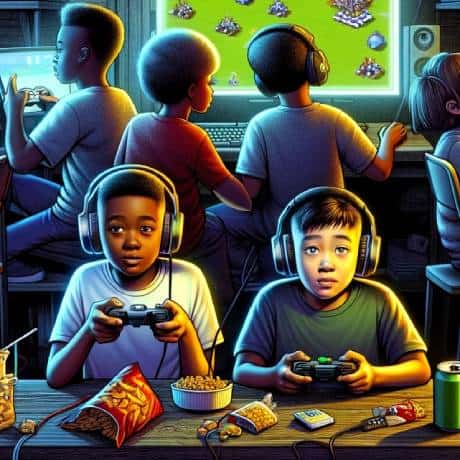






 Potassium
Potassium This vitamin is necessary for the proper function of nerve cells in the body, including those found in the ears. The nerve cells that send sound information to our brain are sensitive to changes in blood flow and oxygen levels, affecting hearing. Vitamin B12 is mainly found in animal-based foods, so if you don’t eat meat or poultry, you may need to supplement with a B12 vitamin. Some good sources of Vitamin B12 include seafood, beef liver, lamb, and eggs.
This vitamin is necessary for the proper function of nerve cells in the body, including those found in the ears. The nerve cells that send sound information to our brain are sensitive to changes in blood flow and oxygen levels, affecting hearing. Vitamin B12 is mainly found in animal-based foods, so if you don’t eat meat or poultry, you may need to supplement with a B12 vitamin. Some good sources of Vitamin B12 include seafood, beef liver, lamb, and eggs. Zinc is another mineral that is important for healthy hearing. It helps protect the delicate sensory cells in the inner ear from damage and helps keep them functioning properly. Zinc is found in a variety of foods, but some of the best sources include oysters, beef, pork, chicken, cashews, and almonds.
Zinc is another mineral that is important for healthy hearing. It helps protect the delicate sensory cells in the inner ear from damage and helps keep them functioning properly. Zinc is found in a variety of foods, but some of the best sources include oysters, beef, pork, chicken, cashews, and almonds. Folic acid is a water-soluble vitamin that is important for overall health, including the health of our ears. It helps protect the cells in the inner ear from damage and plays a role in repairing any damage that has already been done. Good sources of folate include leafy green vegetables, legumes, nuts, and fruit.
Folic acid is a water-soluble vitamin that is important for overall health, including the health of our ears. It helps protect the cells in the inner ear from damage and plays a role in repairing any damage that has already been done. Good sources of folate include leafy green vegetables, legumes, nuts, and fruit. Vitamin K helps the body absorb calcium, which is important for bone health and bone density. The bones in our inner ear can become damaged due to exposure to loud noises such as explosions or gunshots heard in many video games. Food sources of Vitamin K include dark green leafy vegetables (kale, spinach), broccoli, and Brussels sprouts.
Vitamin K helps the body absorb calcium, which is important for bone health and bone density. The bones in our inner ear can become damaged due to exposure to loud noises such as explosions or gunshots heard in many video games. Food sources of Vitamin K include dark green leafy vegetables (kale, spinach), broccoli, and Brussels sprouts. People with lower vitamin D levels may be more likely to experience age-related hearing loss. This is because vitamin D helps protect the cells in the inner ear from damage by protecting these cells by increasing their ability to resist oxidative stress. Although it is not clear yet whether taking vitamin D supplements can help prevent hearing loss, it is still a good idea to make sure you are getting enough of this nutrient through your diet. Some good sources of vitamin D include fatty fish, such as salmon and tuna, eggs, cheese, and mushrooms.
People with lower vitamin D levels may be more likely to experience age-related hearing loss. This is because vitamin D helps protect the cells in the inner ear from damage by protecting these cells by increasing their ability to resist oxidative stress. Although it is not clear yet whether taking vitamin D supplements can help prevent hearing loss, it is still a good idea to make sure you are getting enough of this nutrient through your diet. Some good sources of vitamin D include fatty fish, such as salmon and tuna, eggs, cheese, and mushrooms. The omega fatty acids found in fish oil have been shown to reduce hearing loss and promote healthy gamer hearing. Studies have also shown that people with higher levels of omega-fatty acids in their blood have better hearing than those with lower levels. Some good sources of omega-fatty acids include fatty fish, such as salmon, tuna, mackerel, herring, and nuts like walnuts and almonds.
The omega fatty acids found in fish oil have been shown to reduce hearing loss and promote healthy gamer hearing. Studies have also shown that people with higher levels of omega-fatty acids in their blood have better hearing than those with lower levels. Some good sources of omega-fatty acids include fatty fish, such as salmon, tuna, mackerel, herring, and nuts like walnuts and almonds. Vitamin A, Vitamin C, Vitamin E, Lycopene (found in tomatoes), Lutein (found in leafy greens), and Polyphenols found in green tea have all been shown to help protect the ears from damage. They do this by fighting oxidative stress and inflammation that can damage the delicate cells in the inner ear. These antioxidants and anti-inflammatory nutrients can be found in a variety of foods, so make sure you are eating plenty of fruits and vegetables every day.
Vitamin A, Vitamin C, Vitamin E, Lycopene (found in tomatoes), Lutein (found in leafy greens), and Polyphenols found in green tea have all been shown to help protect the ears from damage. They do this by fighting oxidative stress and inflammation that can damage the delicate cells in the inner ear. These antioxidants and anti-inflammatory nutrients can be found in a variety of foods, so make sure you are eating plenty of fruits and vegetables every day. TTS is a temporary loss of hearing sensitivity caused by exposure to loud noise. The good news is that if you experience TTS, your hearing will eventually return to normal. However, if you are exposed to loud noise often, you can develop a condition called permanent threshold shift (PTS), which is a permanent loss of hearing sensitivity. PTS can then lead to tinnitus – a condition in which you experience ringing or buzzing in your ears.
TTS is a temporary loss of hearing sensitivity caused by exposure to loud noise. The good news is that if you experience TTS, your hearing will eventually return to normal. However, if you are exposed to loud noise often, you can develop a condition called permanent threshold shift (PTS), which is a permanent loss of hearing sensitivity. PTS can then lead to tinnitus – a condition in which you experience ringing or buzzing in your ears.